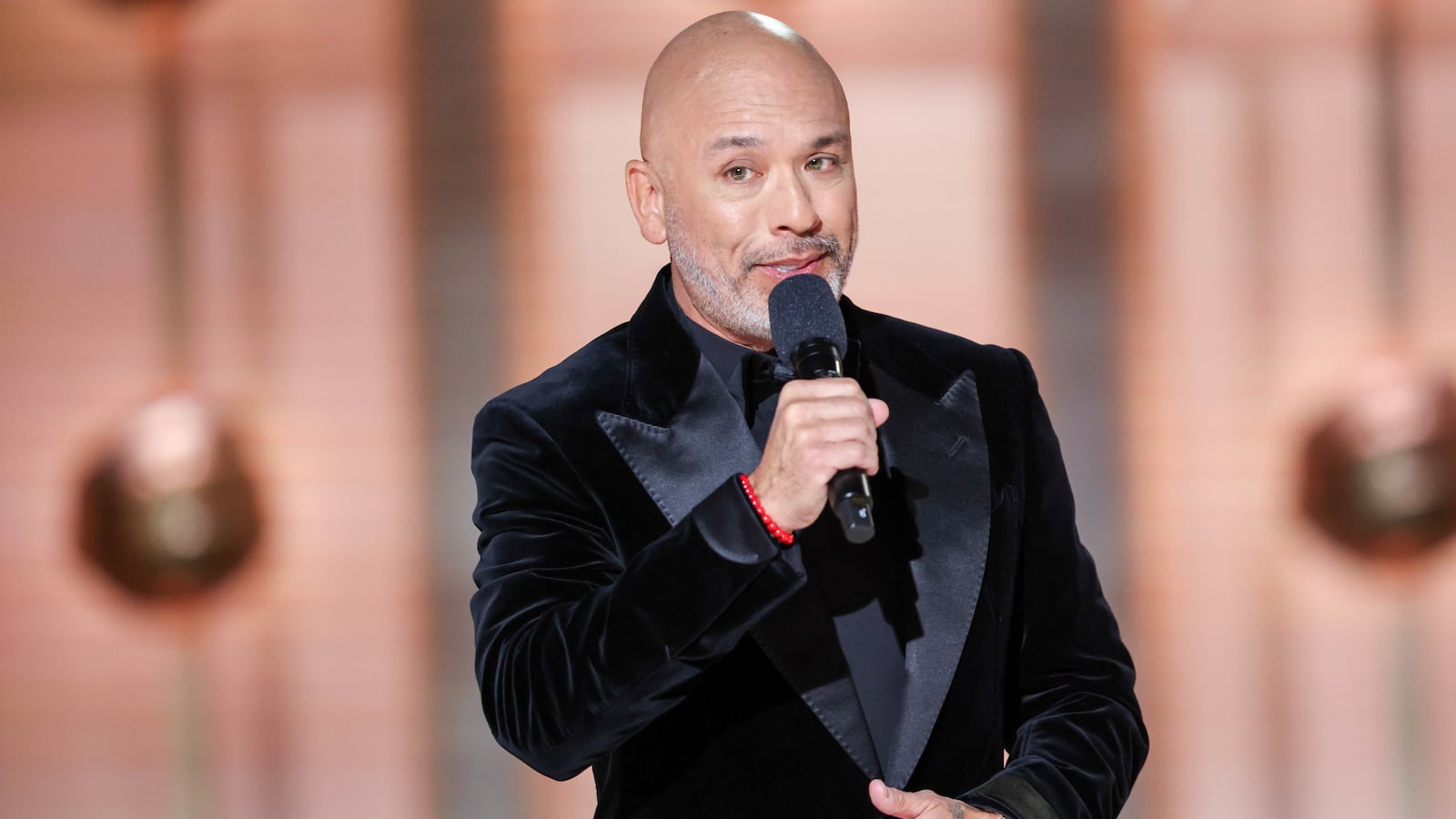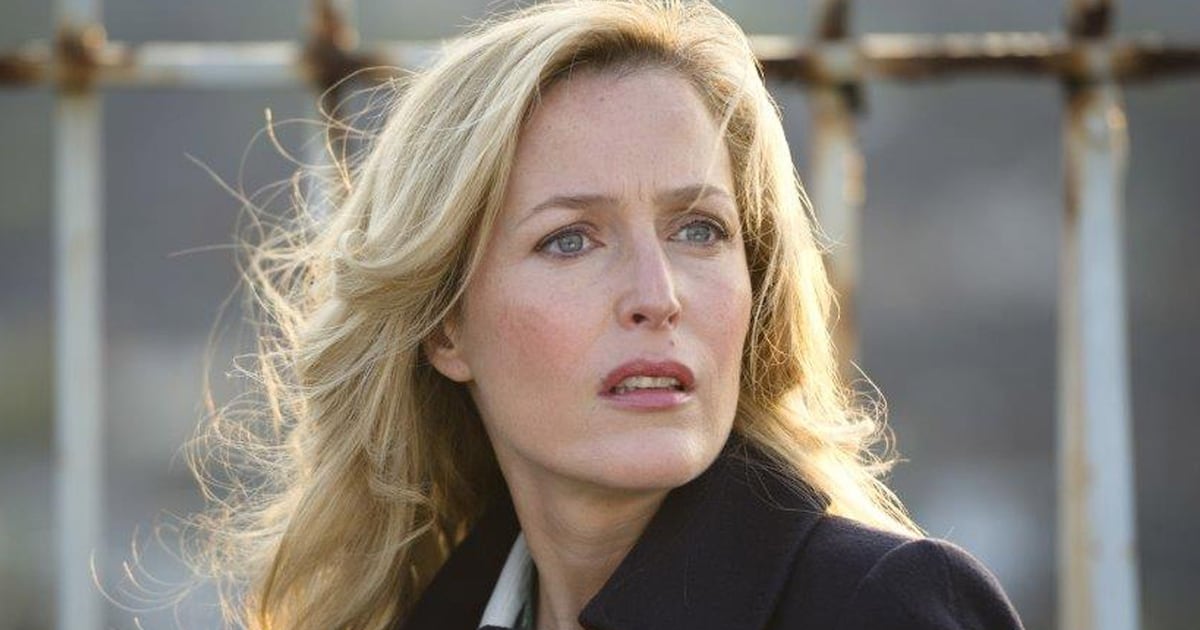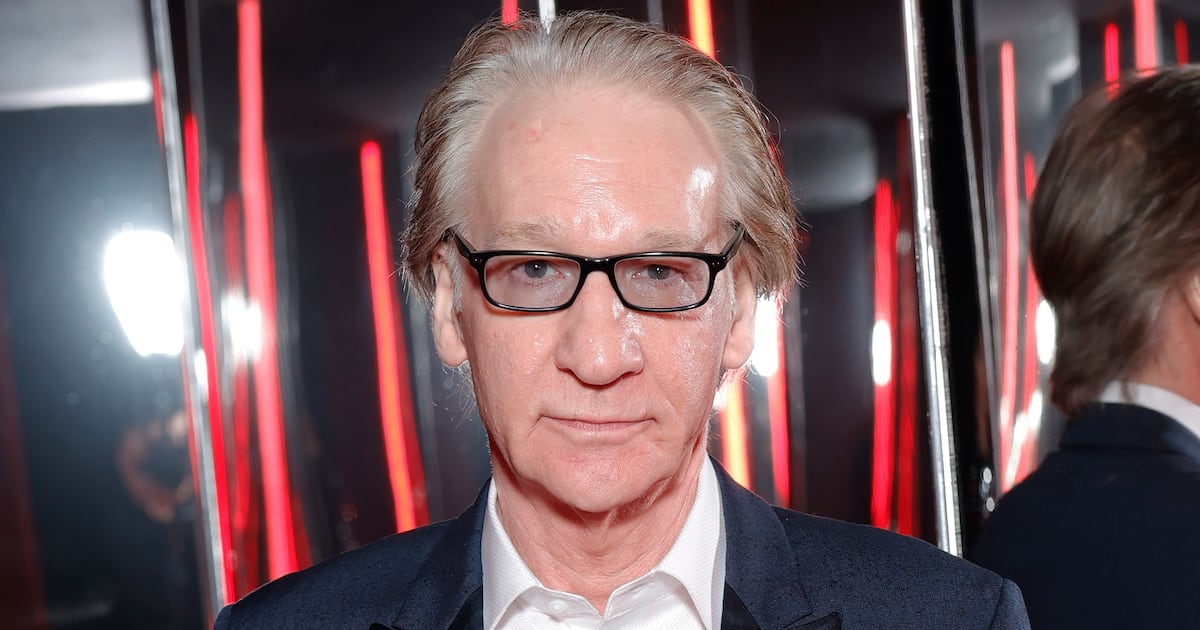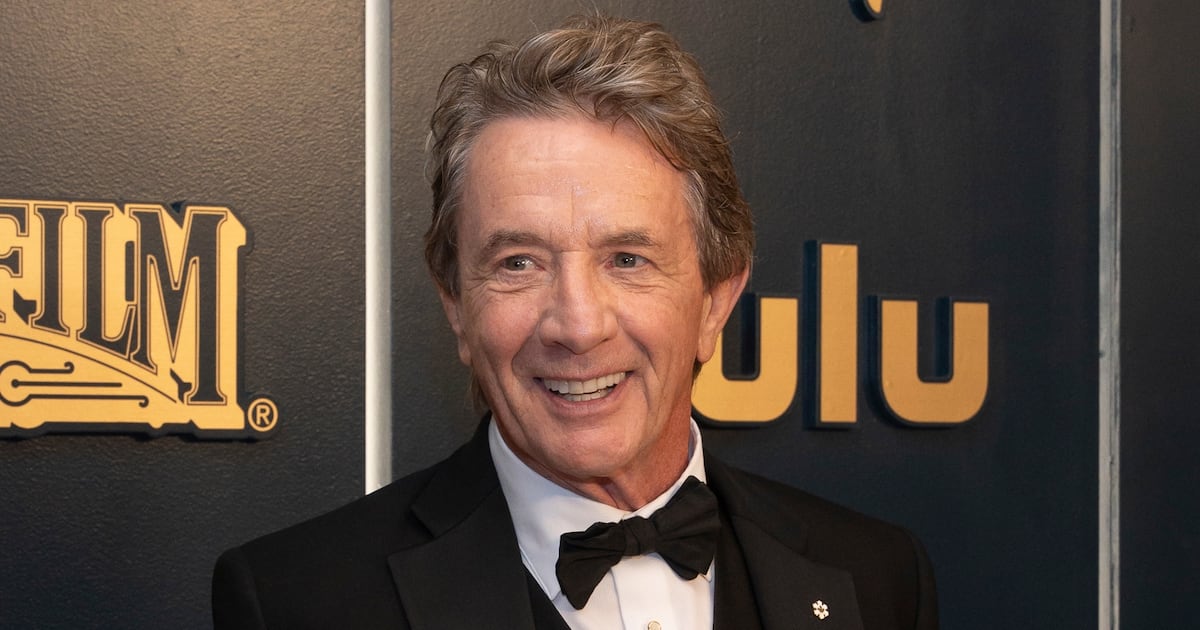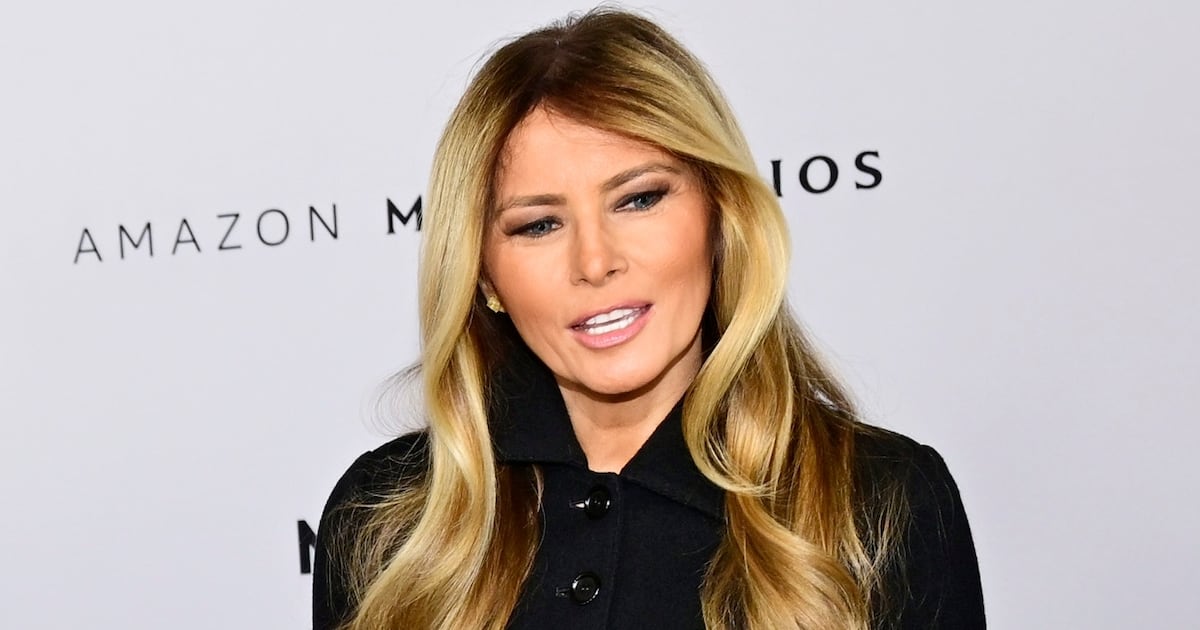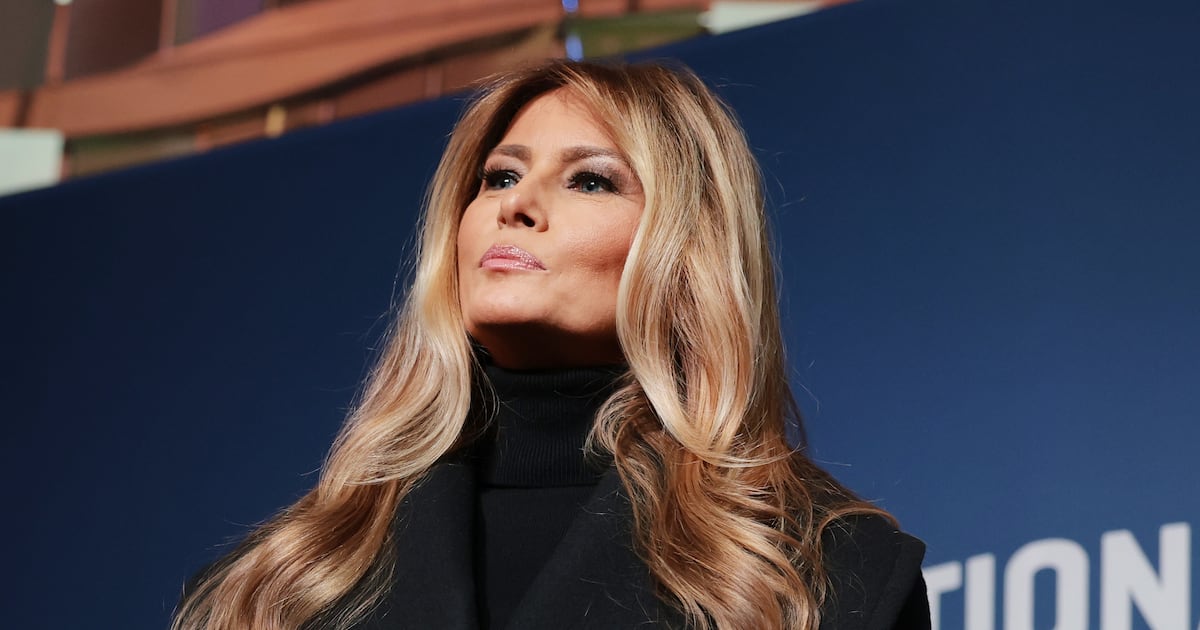It’s not good when the biggest, most widely circulated moment from an award show is a cut to Taylor Swift, famously the industry’s most enthusiastic award-show cheerleader, scowling at how bad things are going.
That happened early into Sunday night’s 2024 Golden Globe Awards telecast, when the host, comedian Jo Koy, had just wrapped a monologue that went over so poorly, anyone watching was justified in wondering if it was a mistake to bring this ceremony back after its scandal-plagued hiatus. The flush of Koy’s comedic turd came when he turned his attention to Swift, who was there on behalf of her Taylor Swift: The Eras Tour movie, which was nominated for the polarizing (as in, utterly ridiculous) new Award for Cinematic and Box Office Achievement.
“The big difference between the Golden Globes and the NFL: On the Golden Globes, we have fewer camera shots of Taylor Swift,” Koy said, as the camera cut to Swift, who was stone-faced, save for a death glare that could have terminated the comedian on the spot. Immediately, Koy apologized.
It’s a shame that this—the awkward Swift moment and the bafflement over Koy’s 10-minute monologue—is the talking point of this year’s Globes.

The ceremony returned after making long-overdue changes to its organization, the aim of which were to reform its decades of corruption and make an active push for inclusivity and legitimacy. Not only has Hollywood seemed to, with a mixture of graciousness and narcissism, forgive the organization and show up for the ceremony, this was the first major award show after months of an industry shutdown to support striking workers. Moreover, the wins themselves were actually good. There were huge showings for Oppenheimer, Poor Things, The Bear, Succession, and Beef, while Killers of the Flower Moon star Lily Gladstone’s historic win for Best Actress in a Motion Picture—Drama became a moving, poignant moment.
The show opened with a drone flying through the red carpet into the ballroom, presumably on its way to drop the bomb that was the show’s opening act. (Perhaps a way to telegraph that Oppenheimer would be a big winner that night?) It was remarkable, given that flop start, how quickly the show moved after, breezing through dozens of awards to finish promptly in three hours. But regardless of what one could admire about the telecast, the awards’ reforms, and the deserving winners, the fact that the big takeaway is a celebrity’s scowl speaks volumes about the value of this particular ceremony going forward.
For decades, the Globes was considered Hollywood’s boozy party, a loose and slightly debauched contrast to the prim-and-proper Academy Awards. Mixing the TV and film actors was novel, in a time before Hollywood’s biggest stars were taking over limited series. The nominations and wins were off-kilter, bizarre, and kind of fun, with Globes voters often being the first to recognize buzzy new series or actors, or nominate those megastars from Hollywood blockbusters that snootier awards bodies would scoff at. (OK, we know the reasons for those nominations were suspect. But in a state of ignorance, it was refreshing.)
The point of the Globes was to celebrate glitz and glamor as much as great art, while also taking a bit of a piss out of the pomp and circumstance of award season. That became especially true in the last decade and a half, when hosts like Ricky Gervais, Tina Fey, Amy Poehler, and Seth Meyers turned emceeing the ceremony into a Hollywood roast.
While actors were obviously proud of their wins and the telecast served as a platform to mint new A-listers and boost Oscar and Emmy chances, legitimacy was never really the point. That, of course, ended up being its downfall.
The Globes needed a revamp after its tainted history came to light. The fruits of that effort—increasing its voting body and the diversity of its members, while demanding worthwhile credentials from its journalists—are seen in this year’s nominees and winners, a crop which ranks as probably the most respectable since I’ve been covering these awards. Do I miss a sprinkling of those classic “Globes gonna Globe!” nominations that come out of left field? A little bit. But at the same time, as someone who covers this industry, it’s nice to not be embarrassed—or, worse, outraged—by the performances and projects that one of the most visible awards shows to the mainstream public deems “best.”
The speeches Sunday night were lovely, with nobody overstaying their welcome. I loved Kieran Culkin’s sheepish yammering when he won Best Actor in a Drama Series for Succession and The Bear’s Best Actress in a Comedy Series winner Ayo Edebiri’s brilliant, charming, and accurate thank you to all of her “agents’ and managers’ assistants—the people who will answer my emails. You are the real ones.”
Still, while understanding that we are an award-show Goldilocks who would complain if the speeches were too long, when they are all uniformly brief, the show misses a bit of gravitas.

Koy’s monologue was, again, a disaster, losing his audience immediately after a joke about Barbie’s boobs that went over like a dank fart. Speaking of, there was his equally derided comparison of The Color Purple to what happens to your butt when you’re on Ozempic. By the time he forced poor Meryl Streep to do the Wakanda Forever salute, I was expecting a mass walkout from the ballroom. As things got worse and worse for Koy, he kept blaming the bad jokes on the monologue’s other writers, a particularly classless move that didn’t help win anyone back.
I was not expecting, then, for so much of the presenter banter to be so entertaining. Odd pairing of America Ferrera and Kevin Costner, and Keri Russell and Ray Romano, turned out to be inspired. Andra Day and Jon Batiste proved to have effortless comedic timing. Simu Liu and Issa Rae joking about wanting to play more “white roles” after starring in Barbie was hilarious, as each character they described was a version of an alcoholic. Then Kristen Wiig and Will Ferrell, one of the Globes’ all-time-great presenter pairings, were presumably sent from God, as an apology for Koy’s monologue, to save the show.
Presenter banter at award shows tends to be excruciating. So how does it make sense that a telecast in which the monologue was so bad that the host started to throw the writers under the bus for it also has some of the funniest presenter bits I’ve seen in years?
Maybe some of this is to be expected: A comedian not known to the audience who typically watches or covers an event like this (nor, I’m guessing, to Hollywood celebrities) is hired barely two weeks before the ceremony. He bombs wildly. And because he’s so unused to this kind of platform, he starts blaming his writers for bad jokes and berates the audience for not laughing.
It’s no wonder that it’s hard to figure out what to make of the Globes after this telecast, because it doesn't seem like the Globes even knows what to make of itself at this turning point. Its producers don't know what kind of show it wants this to be. Was the goal for us to have fun? I certainly didn’t enjoy that monologue, to the point that it might have been worth breaking recent Globes tradition and going host-free. There were bits that I found entertaining, but did I find the show entertaining? Certainly not.
There was no whimsy or silliness—at least until our saviors Wiig and Ferrell arrived. There was no elevated sense of gravity to the event either, certainly not when the longest segment of the night was devoted to giving an award to whichever movie made the most money. It’s great that the nominees and winners were worthy. But when they’re the same nominees and winners from each of the dozens of awards handed out in a year, what becomes the point of a Golden Globes whose telecast isn’t fun enough to make up for that rubber-stamp boringness?
We’ll see what the ratings are for Sunday’s show, but I think time is running out for an answer.

